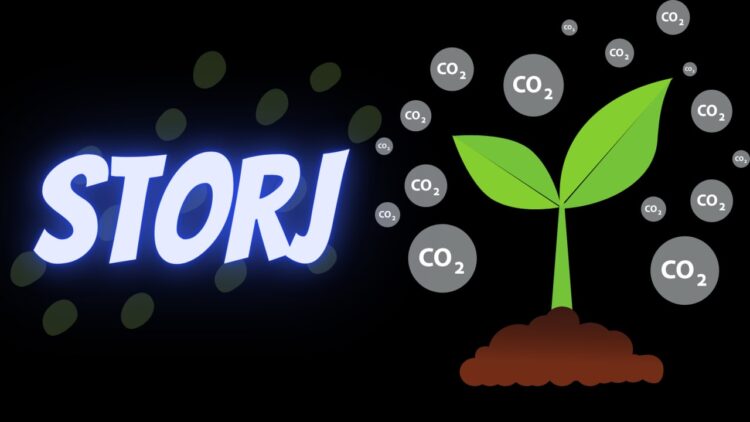Amid the rising concerns over Bitcoin’s high carbon footprint, Storj announced they are offsetting 50 million pounds of carbon this year. This announcement was made yesterday, April 30th, via their official Twitter account.
STORJ is a decentralized storage company that provides a decentralized cloud storage (DCS) network for developers called Storj DCS. The company’s native currency, Storj, is built on the Ethereum blockchain. It is committed to promoting a sustainable environment and enhancing decentralization through its greenest cloud storage solution.
As part of its goal to significantly reduce digital mining carbon footprint and become proof-of-work (PoW) free, the company created “The Greenest Storage Solution” to reduce the carbon emissions produced by various transaction processes associated with the PoW system.
Blockchains such as Bitcoin and Ethereum use a system known as proof-of-work (PoW) to secure their blockchains and cryptocurrency projects built on their blockchains and prevent to anyone from spending the same cryptocurrency twice. The system utilizes digital mining to verify new transactions and generate new coins.
Digital mining is energy-intensive and emits significant amounts of carbon dioxide as the process uses high-energy-consuming computer farms to solve complex mathematical problems associated with transaction verification on various blockchains. Concerns about the process’s high carbon emissions have grown in response to the environmental impact of increased carbon emission.
STORJ is currently utilizing its platform decentralized storage model to reduce the amount of carbon that its network’s transaction processing will release by 50 million pounds this year. The decentralized model is designed to be energy efficient, as it employs thousands of underutilized hard drives from around the world as nodes rather than centralized cloud storage.
In contrast to the traditional method under the proof-of-work system, which uses a new drive to generate new blocks, the decentralized model uses existing unused storage of hard drives during mining to create new blocks. This tweak to the digital mining process reduces their carbon footprint significantly. In addition, its decentralized storage offers better privacy protection compared to the widely used centralized storage.
Further more, the company plans to move to the Ethereum’s Proof-of-Stake Consensus Layer, which is still under development and pledged to be completely free from the environmentally destructive proof-of-work by the end of 2022.










